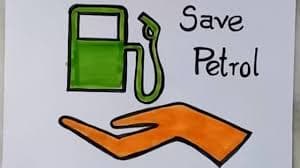
Celebrating the Past and Embracing the Future: Car Events in the UAE
🕓 June 1, 2024

With rising fuel prices and increasing environmental awareness, maximizing fuel efficiency is more important than ever. Whether you’re driving a compact car or a large SUV, adopting fuel-saving practices can help you get the most out of every gallon. This guide offers practical tips to improve your vehicle’s fuel efficiency, saving you money and reducing your carbon footprint.
Maintaining Your Vehicle: Regular maintenance is crucial for optimal fuel efficiency. Ensure your engine is running smoothly by keeping up with oil changes, replacing air filters, and checking spark plugs. A well-maintained engine operates more efficiently, burning less fuel. Additionally, ensure your tires are properly inflated. Under-inflated tires create more rolling resistance, reducing fuel economy. Check tire pressure regularly and keep them at the recommended levels.
Driving Habits: Your driving style significantly impacts fuel consumption. Accelerate gradually and avoid rapid starts and stops. Smooth driving uses less fuel than aggressive driving. Maintain a steady speed, using cruise control on highways to reduce unnecessary acceleration and deceleration. Anticipate traffic conditions to avoid sudden braking and maintain a consistent flow.
Reducing Weight and Drag: Extra weight in your car requires more energy to move, reducing fuel efficiency. Remove unnecessary items from your trunk and backseat to lighten the load. Similarly, aerodynamic drag increases fuel consumption. Remove roof racks and carriers when not in use, as they create additional wind resistance. Keep windows closed at high speeds to reduce drag and improve aerodynamics.
Optimal Use of Air Conditioning: Using air conditioning increases fuel consumption. On hot days, park in the shade or use a sunshade to keep your car cool. When driving at lower speeds, open the windows for ventilation. At higher speeds, it’s more fuel-efficient to use the air conditioning with the windows closed to reduce drag. Set the AC to a comfortable level instead of max cooling to save energy.
Proper Route Planning: Planning your route can significantly impact fuel efficiency. Avoid congested roads and peak traffic times to minimize idling and stop-and-go driving. Use GPS or traffic apps to find the most efficient route, even if it’s slightly longer. Combining errands into one trip can also save fuel by reducing the number of cold starts.
Use of Fuel Additives: Certain fuel additives claim to improve fuel efficiency by cleaning the fuel system and improving combustion. While results can vary, using high-quality fuel and occasional fuel system cleaner can help maintain engine performance. However, it’s essential to use products recommended by your vehicle’s manufacturer to avoid potential damage.
Monitoring Fuel Consumption: Keeping track of your fuel consumption can help identify patterns and areas for improvement. Many modern vehicles have onboard computers that display real-time fuel efficiency. Use this information to adjust your driving habits and monitor the impact of changes. Additionally, smartphone apps can help track fuel consumption, maintenance schedules, and driving habits, providing valuable insights into your vehicle’s performance.
Conclusion: Maximizing fuel efficiency requires a combination of regular maintenance, smart driving habits, and mindful planning. By implementing these tips, you can improve your vehicle’s fuel economy, save money, and contribute to a greener environment. Remember, small changes in your driving and maintenance routines can have a significant impact on your overall fuel consumption.

Share it with friends!
share your thoughts